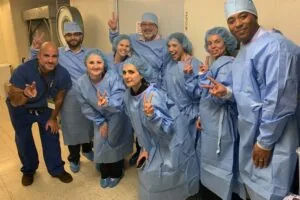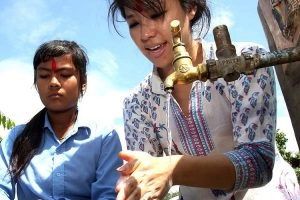Description
The COVID-19 pandemic made us all much more concerned about eradicating germs. Hand sanitizer is now a household staple, and HEPA air filters have become the norm in offices and other indoor spaces. But many microscopic organisms we call “germs,” particularly bacteria, are actually beneficial.
Susan Forsburg, Distinguished Professor of Biological Sciences, and other experts USC Dornsife College of Letters, Arts and Sciences discuss how bacteria can help us, from treating wastewater to cleaning the ocean floor to improving our immune system.
The panel also features Jan Amend, professor of earth sciences and biological sciences, and Moh El-Naggar, dean’s professor of physics and astronomy and professor of physics and chemistry.
Who Will Benefit
– Those interested in learning more about the benefits of bacteria
– Science students hoping to understand how germs balance ecosystems
– Those seeking deeper insights on how the COVID-19 pandemic has changed our perspective on germs
About Our Featured Faculty
Susan Forsburg is a Distinguished Professor of Biological Sciences at USC Dornsife College of Letters, Arts and Sciences. Forsberg studies cell division in yeast DNA to better understand how cancer works in humans. She is an elected fellow of the American Association for the Advancement of Science, the Association for Women in Science, the California Academy of Sciences and the American Academy of Microbiology. She received her PhD in biology (genetics) from Massachusetts Institute of Technology and BA in English and molecular biology from University of California, Berkeley.
Jan Amend is the divisional dean for the life sciences and professor of earth sciences and biological sciences at USC Dornsife College of Letters, Arts and Sciences. Amend provides critical academic leadership to life sciences faculty in the Division of Natural Sciences and Mathematics. He supports departments, centers and institutes in recruiting and retaining outstanding faculty and advancing innovative research, and helps faculty navigate administrative challenges. He is the director of the National Science Foundation Science and Technology Center for Dark Energy Biosphere Investigations at USC, where he conducts much of his research and fieldwork focused on detecting and characterizing microbial life in the ocean’s subsurface, particularly in extreme environments. He also studies astrobiology as related to NASA missions of habitability and life detection on Mars. Amend has authored or co-authored more than 125 peer-reviewed publications.
Mohamed El-Naggar is Dean’s Professor of Physics and Astronomy, and professor of physics, biological sciences, and chemistry at USC. El-Naggar and his interdisciplinary group investigate biological electron transfer and energy conversion with special emphasis on the interface between biotic and abiotic systems. Their work, which has important implications for fundamental cell physiology, renewable energy, biofuels and environmental remediation, may also lead to the development of new bioelectronics that combine the exquisite biochemical control of nature with the synthetic building blocks of nanotechnology. Towards this goal, El-Naggar is currently the director of a five-year Department of Defense funded multi-university research initiative on Living Electronics. El-Naggar received a BS from Lehigh University (2001), followed by MS (2002) and PhD (2006) from the California Institute of Technology.



